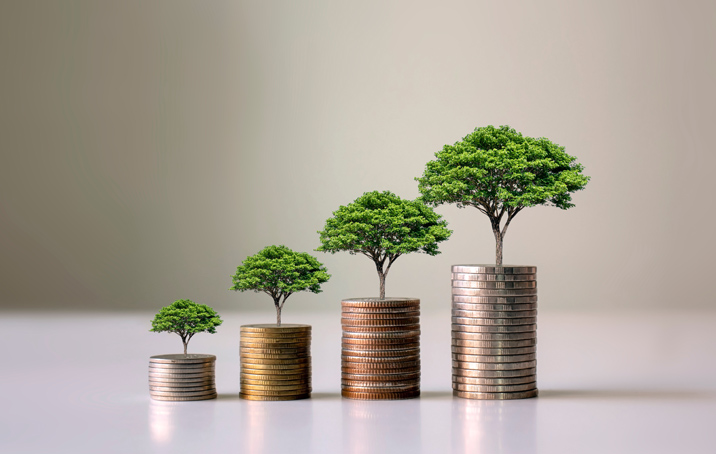The investment opportunity presented by the SDGs
MoraBanking | 05.27.2024

The 2030 Agenda Sustainable Development Goals are a global plan that was launched to foster social well-being, economic development and environmental sustainability. Today, the SDGs are seen as a priority when it comes to aligning the portfolios of a large number of investors. In this transition towards a more sustainable, fairer and cleaner economy, governments, companies and investors, as key actors alongside citizens, need a clear framework that sets out the global needs (and opportunities), and a guide that brings together the actions taken and their importance.
In this regard, the SDGs allow us to set objectives, from a common standpoint, where we can make use of the limited resources that we have. Sustainable development strives to ensure that we use resources in such a way that we can continue to do so in the future. This means using the planet’s resources where they are needed and with the greatest efficiency. Society needs guidance so that it can act effectively and be valued for doing so.
Once the objectives are understood, achieving them calls for a significant mobilisation of capital, both public and, above all, private. It will then be the companies that are aligned to these objectives that will provide the solutions to the challenges that are out there, organisations with a clearer growth vector into the future than those that negatively impact this common goal.
The growth of sustainable investing is the key to achieving these goals at a time when financial markets are already considering the integration of sustainability metrics into their investment strategies. However, 2023 proved to be a challenging year for sustainable investment flows, mainly down to the impact of rising interest rates on new renewable energy projects and the politicisation of some ESG approaches in the US. However, if we take into account the climate policies that are already underway in a number of countries, such as the strong support shown by legislation such as the US Inflation Reduction Act or the European Net-Zero Industrial Act, and the growing awareness among consumers, companies and the financial sector itself, we can expect an early return of capital flows towards sustainable investments.
This sustainable development allows society to grow without forgetting the concept of a finite planet. An action plan for people, planet and prosperity with a shared goal to improve.
The market economy is unlike geopolitics or other previous economic systems that use ‘zero-sum’ accounting. Today, the global economy we live in has proven capable of improving global indicators without leaving anyone behind. This was the case with the Millennium Development Goals and the current SDGs, until pivotal international crises, such as the recent pandemic or the energy crisis following the invasion of Ukraine, hampered the success of the efforts made and set back some of the desired objectives.
In recent years, we have seen improvements in a number of objectives, such as the record deployment of clean technologies, twice the number of protected oceans since 2010, or the increase in women’s representation in parliaments in several countries. Nevertheless, other cases are lagging behind, such as dangerously rising inequality, 26% of the world’s population facing food insecurity, endangered biodiversity or a world that is getting hotter and hotter. For this reason, the United Nations has designated this decade as the “Decade of Action” for the SDGs.
This structure that makes up the SDGs serves to put in place the pieces that will build our world in a better way for everyone, benefiting us all. Specifically, investors are seeing that, while they are having a positive impact, they are also part of a $12 trillion annual business opportunity, with increasing regulatory support and better risk management that avoids surprises when updating the value of the assets of the companies they invest in. Today, there are many studies that point to the positive correlation between better ESG performance and higher financial returns for companies [see NOTE], without forgetting the risk of not taking them into account due to fines or unforeseen changes in legislation, rising carbon prices, etc. Directing investments towards fostering the SDGs means ensuring sustainable investments with a defined impact, avoiding possible deviations through some ESG ratings.
The risk-benefit balance of an investment portfolio need not be compromised by including securities with certain environmental, social or governance conditions, allowing it to be aligned with investors’ values or priorities. Today, investing in companies aligned with common goals, such as the SDGs is possible, without compromising results, which is a step beyond simply assimilating ESG ratings.
In this regard, it is important to note that metrics are key to evaluating impact investments, and only some managers have their own measurement tools and free access to share their assessment of companies and countries with regard to the SDGs.
Let’s recall Ronald Cohen’s comment, as an example of a successful investor, when he pointed out that if we were to properly measure the impact of investments, it would become clear that the most responsible management is also the most profitable. The market mechanism has proven to be the best tool for allocating resources, but like any tool, it owes its consequences to those who use it. The emergence of the sustainable investor as a recognised figure is a significant step towards smarter, more orderly and forward-looking investment.
Signed:
Robeco Chair in Sustainability and Primary Resources in collaboration with Morabanc
NOTE:
According to Robeco, the link between corporate sustainability and financial performance is based on half a century of academic research. A 2015 meta-study by Friede et al. conducted a comprehensive, quantitative study of 2,250 published academic studies on ESG performance, covering four decades of data from 1970 to 20141.
The analysis concluded that ESG criteria were positively correlated with company financial performance in 62.6% of the studies and negatively correlated in less than 10% of the cases (the rest were neutral). A 2023 study analysed company performance from 2015 to 2020. The results were similar, backing up the idea that integrating ESG information into company operations and decision making can add value that results in better managed companies and better financial performance.2.
1 Friede, G. Busch, T. and Bassen, A. “ESG and financial performance: aggregated evidence from more than 2000 empirical studies.” (2015). Journal of Sustainable Finance & Investment, 5:4, 210-233
2 Atz, U. van Holt, T. et al. “Does sustainability generate better financial performance? review, meta-analysis, and propositions.” (2022). Journal of Sustainable Finance & Investment.
Information on the processing of personal data
In compliance with Law 15/2003 of 18 December on protection of personal data, the customer authorizes that the applicant’s personal data entered on this form will be incorporated into files owned and managed by MORA BANC GRUP, SA – MORA BANC, SAU (hereafter referred to as “MoraBanc”) to process the requested service and, if necessary, to comply with the contracts finally entered into, and also to ensure correct operational procedures.
The applicant expressly authorises MoraBanc to send him/her commercial and promotional communications for products and services and information on the Bank itself, social or other activities, in hardcopy by post or by electronic means (among others, short messages (SMS) to mobile phones, e-mail, etc.). This consent can always be withdrawn, without retroactive effect.
The fact of filling out this form implies that the applicant acknowledges that the information and personal data provided are true, accurate and correct; otherwise, MoraBanc declines all responsibility for the lack of truthfulness or correctness of the data.
The applicant authorises the data provided to be communicated or shared with third parties forming part of the MoraBanc business group, entities which are primarily active in the financial, insurance and service sectors. The applicant is considered as having been informed of this transfer of information by means of this clause. The applicant accepts that he/she may be sent information on any product or service marketed by these companies.
The data processing manager is MoraBanc. The applicant is hereby informed that the rights of access, rectification, suppression or opposition may be exercised in the terms established in current legislation.



